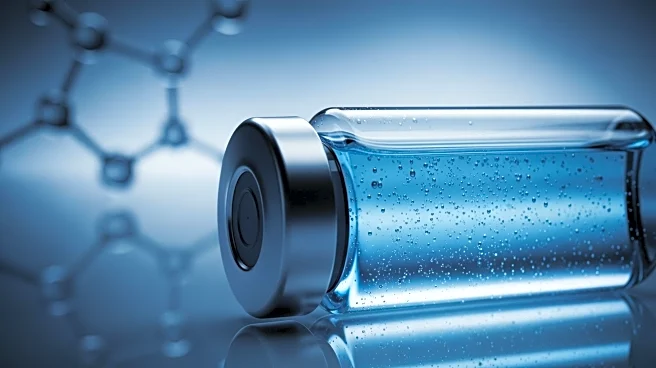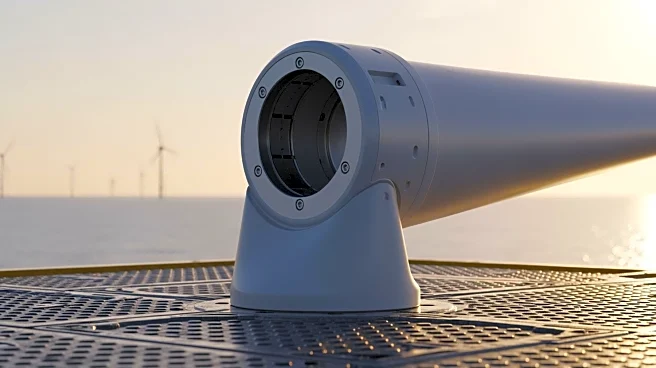What's Happening?
Telomir Pharmaceuticals, a preclinical-stage biotechnology company, has reported that its investigational compound Telomir-1 significantly reduces intracellular iron levels in human keratinocyte cells, outperforming the FDA-approved iron chelator Deferoxamine
(DFO). The study utilized live-cell imaging to demonstrate Telomir-1's potent cell penetration and iron-modulating activity, which are crucial for its broader epigenetic mechanism of action. This development is part of Telomir's program to explore how metal-ion imbalance contributes to oxidative stress, aging, and disease progression.
Why It's Important?
The findings are significant as they suggest Telomir-1 could play a crucial role in addressing metal-ion imbalances that contribute to oxidative stress and aging. By outperforming DFO, Telomir-1 may offer a more effective treatment option for conditions where iron imbalance is a factor, such as cancer and degenerative diseases. This could lead to advancements in therapeutic strategies targeting the epigenetic roots of these conditions, potentially improving patient outcomes and expanding treatment options.
What's Next?
Telomir Pharmaceuticals plans to continue evaluating Telomir-1's ability to influence metal-ion balance, oxidative chemistry, and epigenetic enzyme activity in pre-clinical models. Further studies will focus on its potential use in clinical settings, aiming to develop and commercialize Telomir-1 for specific indications. The company will also explore the compound's safety profile to ensure its viability as a therapeutic option.
Beyond the Headlines
The research highlights the complex interplay between metal-ion balance and epigenetic regulation, suggesting that restoring equilibrium could mitigate genomic instability, a hallmark of aging and disease biology. This approach underscores the potential for epigenetic therapies to address fundamental biological processes, offering a new avenue for treating age-related diseases.















